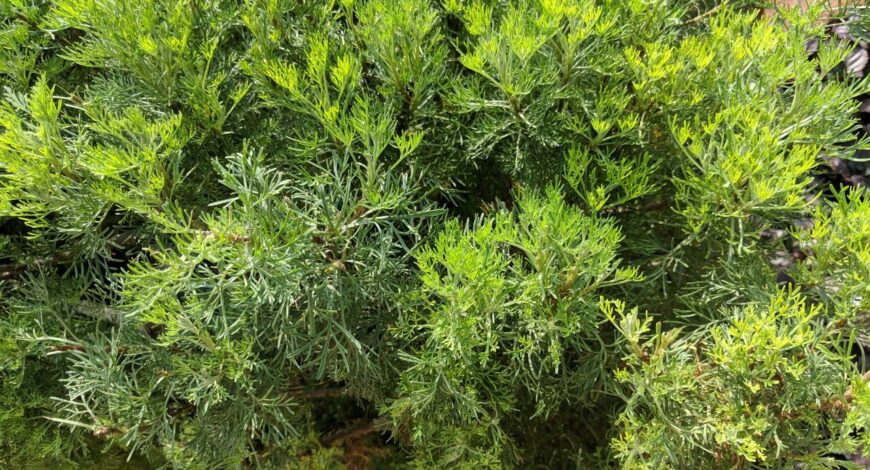The history of davana goes back many centuries in India. It was traditionally used for medicinal and olfactory purposes by local populations. The plant’s leaves and flowers were used for their curative properties and enchanting fragrance.
Over time, davana has grown in popularity as an ingredient in the perfume industry, both in India and internationally. Its warm, fruity, syrupy fragrance has earned it a place in a variety of perfume genres, from amber and gourmand to floral and exotic.
Today, davana is grown mainly in India for its essential oil, extracted by steam distillation of the plant’s aerial parts.
Cultivation, harvesting & distillation :
Planting davana is an ancient art, handed down from generation to generation in the producing regions. It generally begins at the end of the rainy season. The davana seeds are sown at an appropriate depth in prepared seedbeds. The beds are covered with a thin layer of organic mulch to help maintain soil moisture and protect the young shoots. After germination, the davana plants are transplanted into carefully prepared fields. Farmers ensure that the plants receive regular watering to maintain adequate soil moisture.
When mature, davana produces small yellow flowers which are followed by the formation of small seeds for reproduction. These seeds can be harvested for later use or left for natural propagation.
Davana is harvested when the flowers are in full bloom. It is at this stage that the aerial parts of the plant contain the greatest number of olfactory compounds. Pickers carefully choose the most appropriate time of day to harvest, often early in the morning when the flowers are fresh and humidity levels are high. The leaves and stems are meticulously cut using scissors or small knives, taking care not to damage the surrounding plants.
After harvesting, davana distillation involves drying the plant parts for a week, followed by steam distillation for 10 to 15 hours. The volatile compounds are carried away by the steam, which is then condensed to obtain the essential oil.
Olfactory profile
Davana has a unique olfactory profile, combining sweet, fruity and floral notes. Its fragrance is warm, exotic and slightly spicy, with accents of ripe fruit such as plum and apricot. It also has a honeyed sweetness and a subtle herbaceous nuance, making it very popular in perfumery.
To find out more about davana, visit our social networks!
To request a quotation, please contact the sales department: contact@astierdemarest.com



